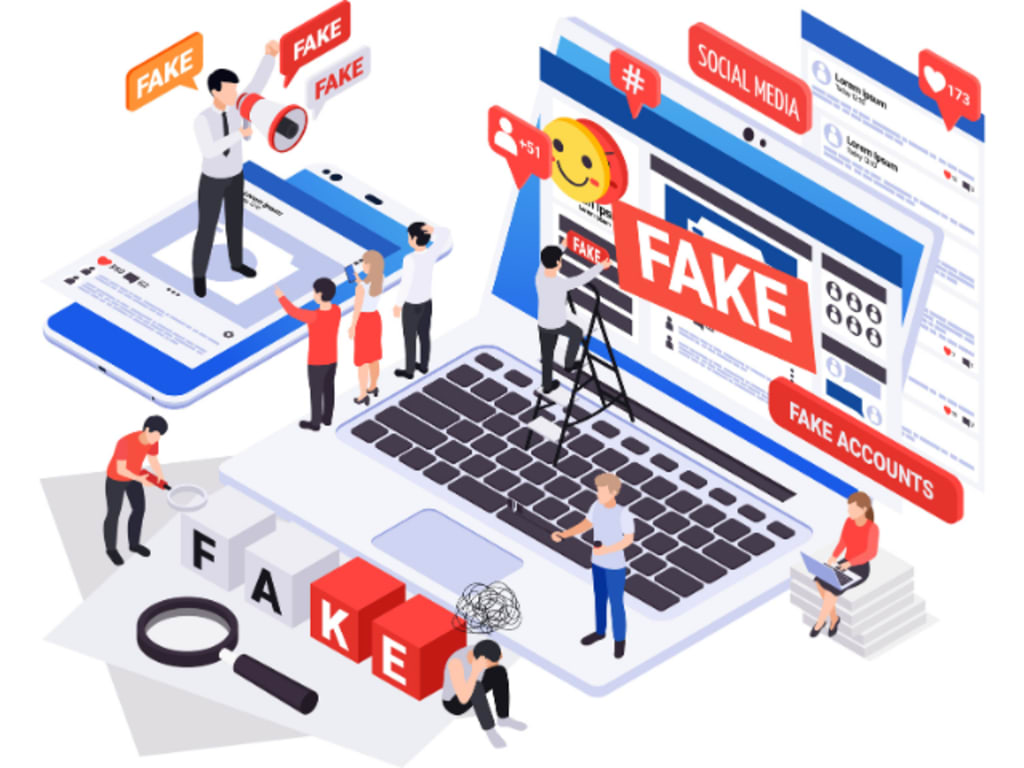Blockchain Technology | Powerful Weapon Against Misinformation
Blockchain Development

In an age of information overload, misinformation and fake news have become rampant, posing serious threats to societies, economies, and individuals. Blockchain technology, once primarily associated with cryptocurrencies, has evolved to address various challenges across industries. In 2023, blockchain's potential to combat misinformation is garnering attention as it offers a decentralized, tamper-resistant, and transparent approach to verifying information. Blockchain technology is proving to be a powerful weapon against misinformation.
The Role of Blockchain in Tackling Fake News
Blockchain technology was being explored and implemented as a potential tool to combat fake news and misinformation in 2021. Several projects and initiatives were underway to leverage blockchain's properties, such as immutability, transparency, and decentralized consensus, to address the spread of false information. These projects aimed to create more reliable and trustworthy information ecosystems where users could verify the authenticity of news and content.
Some blockchain-based platforms were focused on fact-checking and verification processes, where users could participate in the verification of information and earn incentives for their contributions. Others aimed to create decentralized content curation systems to prevent the spread of misinformation on social media and content-sharing platforms.
While there was significant interest and experimentation in this area, it's essential to note that the fight against fake news is a complex and evolving challenge. The effectiveness and widespread adoption of blockchain solutions for this purpose would depend on various factors, including user engagement, industry cooperation, regulatory environment, and technological advancements.
Blockchain Solutions Against Misinformation
Immutable Records: The Foundation of Trust At the core of blockchain's ability to fight misinformation lies its immutability. Once data is recorded on a blockchain, it becomes virtually impossible to alter or erase. A blockchain-based system can be utilized to establish a secure and trustworthy repository for factual information. By providing an immutable trail of credible information, users can easily verify the authenticity of news articles, media content, and other forms of information, mitigating the spread of false narratives.
Fact-Checking Platforms: Empowering the Community Blockchain-based fact-checking platforms enable the collective power of users and validators to assess the veracity of information. Decentralized networks can scrutinize news stories, images, and videos to determine their accuracy. By leveraging consensus mechanisms and incentivizing contributors, these platforms create a dynamic ecosystem for combating misinformation. A blockchain development company can play a significant role in building and refining these platforms for enhanced user engagement and trust.
Digital Signature and Authorship: Ensuring Accountability Blockchain can be employed to create digital signatures for reputable publishers and authors. By associating unique cryptographic signatures with trusted sources, users can easily authenticate the origin and authorship of information. This fosters accountability among content creators and reduces the spread of information from dubious sources.
Transparent Data Tracking: Unravelling the Spread of Misinformation With its transparent nature, blockchain allows for precise data tracking, revealing the paths through which information propagates. This feature empowers stakeholders to identify the origins of misinformation and target interventions accordingly. A blockchain development company can design advanced analytics and tracking tools to provide valuable insights into the dissemination of false information.
Decentralized Content Curation: Preventing Misinformation Spread Traditional content-sharing platforms often struggle to filter out misinformation effectively. In a decentralized blockchain-based system, content curation can be driven by consensus among participants, making it harder for false information to gain traction without verification. A blockchain development company can build decentralized applications that enable seamless content curation while prioritizing fact-checking.
Token-Based Incentive Systems: Engaging Users in the Fight To foster active participation in misinformation identification and reporting, blockchain networks can implement token-based incentive systems. Users can be rewarded for their contributions to fact-checking processes, encouraging more individuals to participate in the battle against misinformation.
Real-World Implementations: Blockchain's Battle Against Misinformation
The potential of blockchain technology to combat misinformation is not limited to theoretical possibilities. Several real-world implementations and initiatives have already demonstrated the power of blockchain in addressing this pressing issue:
Trusted News Platforms: Blockchain-based news platforms are emerging, where publishers are required to register their content on the blockchain. Readers can easily verify the authenticity and source of news articles through digital signatures. This approach reduces the risk of false news spreading and helps consumers make well-informed decisions.
Fact-Checking DApps: Decentralized applications (DApps) focused on fact-checking are gaining traction. These DApps leverage the wisdom of the crowd, as users can submit and verify information. The blockchain acts as an immutable record of the fact-checking process, ensuring transparency and accuracy.
Content Verification for Social Media: Social media platforms have become hotbeds for misinformation. Blockchain-based solutions can enable content verification at the source, empowering users to distinguish between legitimate information and misleading content.
Combating Deepfake Technology: Deepfake technology has the potential to deceive millions by creating realistic but fabricated audio and video content. Blockchain's immutable records and digital signature capabilities can be instrumental in identifying deepfake content and preventing its proliferation.
Conclusion: Building a Truthful Future with Blockchain
In conclusion, blockchain technology is demonstrating its potential to combat misinformation and restore trust in information sources. As misinformation continues to be a significant challenge, blockchain development companies play a critical role in leveraging this technology to build robust and scalable solutions. By focusing on immutability, fact-checking platforms, digital signatures, transparent tracking, decentralized curation, and token-based incentives, blockchain can emerge as a powerful weapon against misinformation and contribute to a more reliable and informed digital world.
If you are interested in exploring how blockchain can be implemented in your project to combat misinformation, our team at Katchin Tech is here to assist you. Contact us today to discover the possibilities and benefits of incorporating blockchain technology into your platform. Together, we can contribute to building a truthful future where accurate information prevails over fake news and misinformation.





Comments
There are no comments for this story
Be the first to respond and start the conversation.